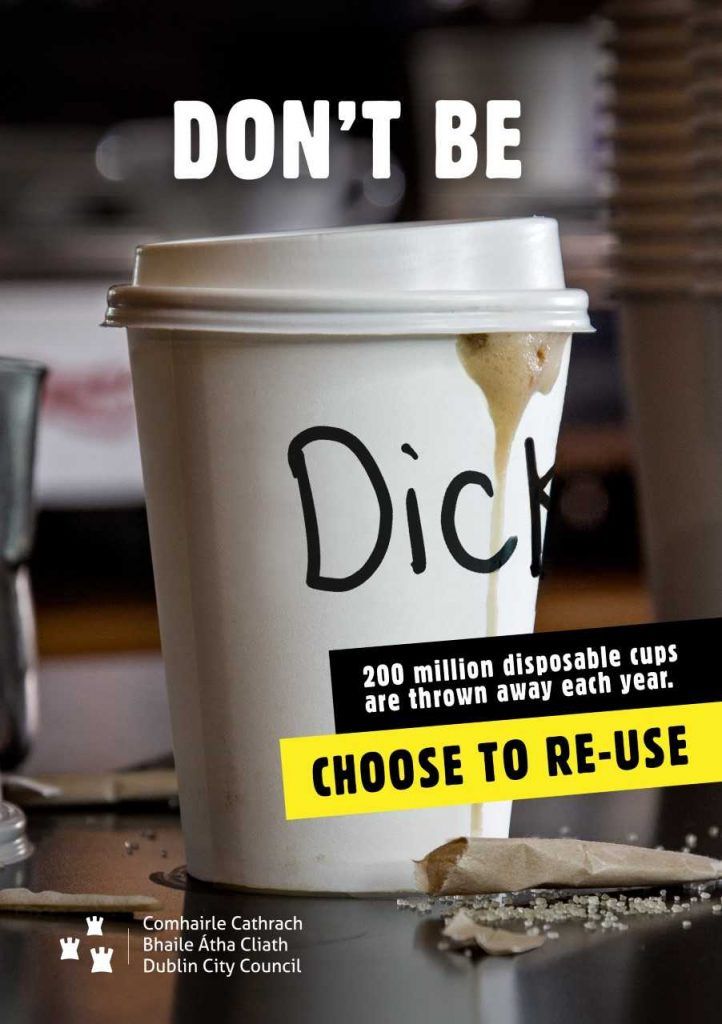

Share
20th June 2018
05:10pm BST

Most disposable cups are made from paper with a plastic lining to make them waterproof in order to hold hot drinks. This makes them unsuitable for recycling in Ireland. With Irish people using in excess of 200 million disposable cups every year, this is having a seriously negative impact on our environment.
To further compound the issue, disposable coffee cups have become a major source of on-street litter across Dublin.
The new campaign, which runs over three weeks from 20 June, is being funded by Dublin City Council, South Dublin County Council, Fingal County Council and the Environmental Protection Agency.
Speaking about the campaign, Sorcha O’Brien, Environmental Awareness Officer of Environment, Water and Climate Change in South Dublin County Council, said: “It just makes sense - using your reusable cup allows you to have your coffee, your way, every day, and at a better price! It also helps minimise waste being created, which in turns helps to make our Dublin a cleaner and nicer place for everyone." Earlier this week, Ireland was ranked as the second worst in Europe in the fight for climate change.
The country was blasted for the fact that it's set to miss its 2020 climate and renewable energy targets and is also off-course for its unambitious 2030 emissions target.
While it was agreed some years ago that Ireland would deliver a 20% reduction in non-ETS greenhouse gas emissions by 2020 (in comparison to its 2005 levels), it's believed that that number will actually be closer to 5 - 6% – which will result in severe penalties for the country.
Mentioned also in the publication was the fact that emissions from the transport and agriculture sectors are increasing significantly.
Earlier this week, Ireland was ranked as the second worst in Europe in the fight for climate change.
The country was blasted for the fact that it's set to miss its 2020 climate and renewable energy targets and is also off-course for its unambitious 2030 emissions target.
While it was agreed some years ago that Ireland would deliver a 20% reduction in non-ETS greenhouse gas emissions by 2020 (in comparison to its 2005 levels), it's believed that that number will actually be closer to 5 - 6% – which will result in severe penalties for the country.
Mentioned also in the publication was the fact that emissions from the transport and agriculture sectors are increasing significantly.Explore more on these topics:

Life Style | Joe.ie
life style